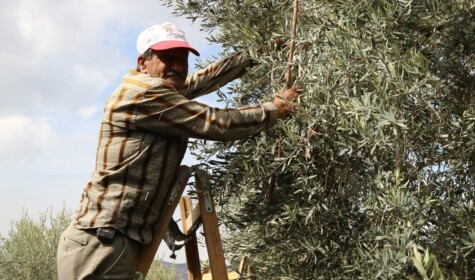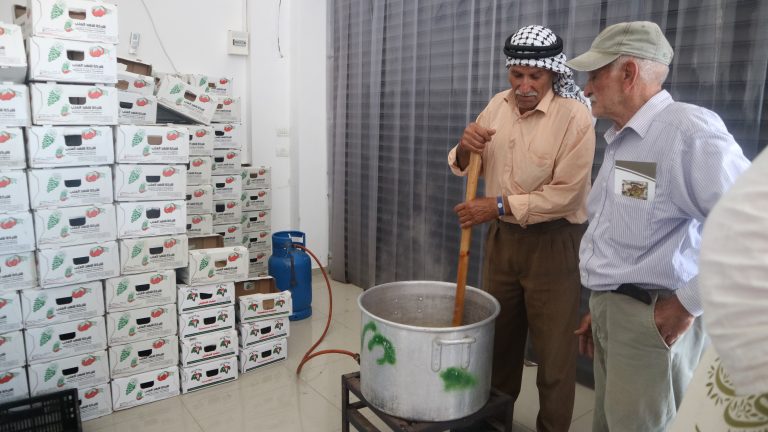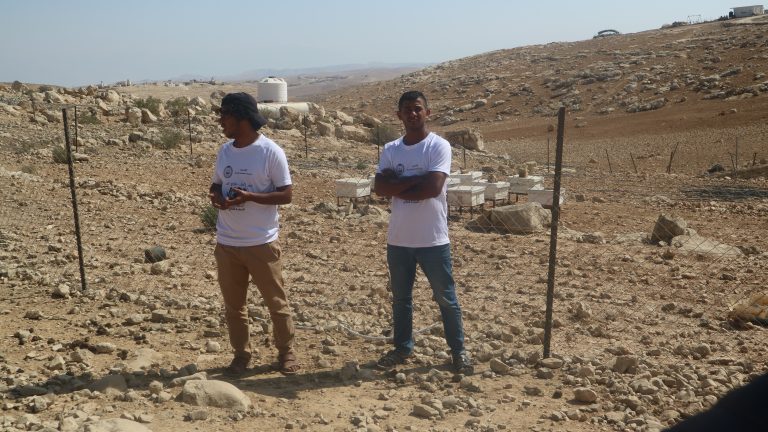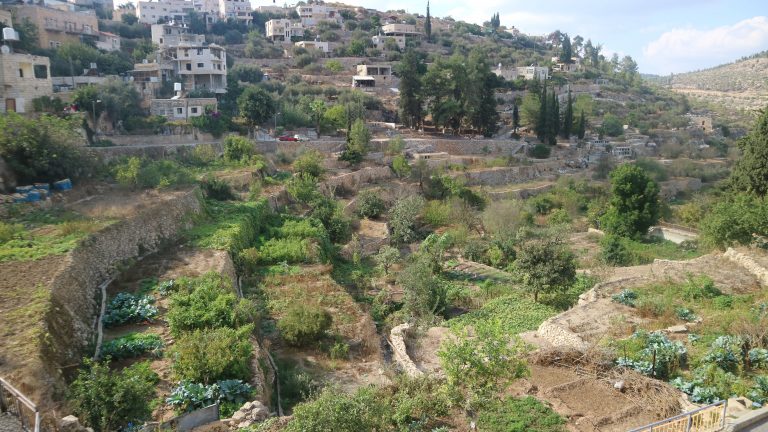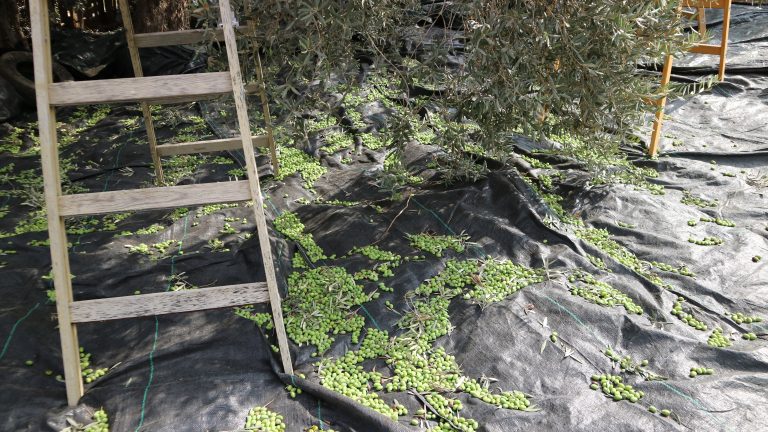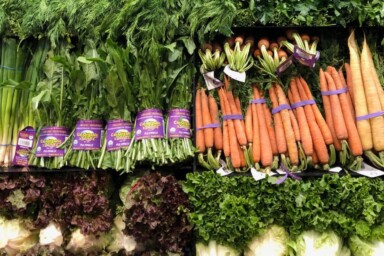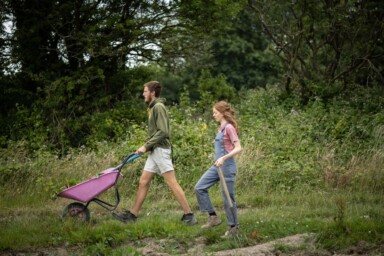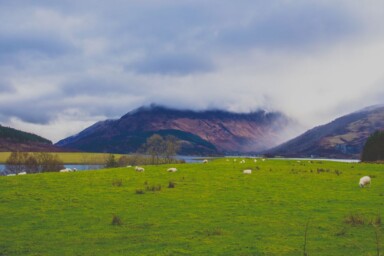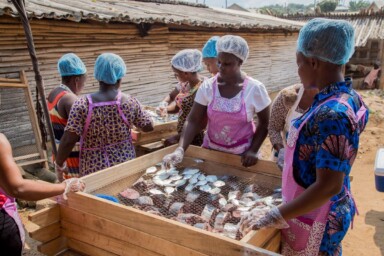In October last year, I joined the Amos Trust for my first trip to Palestine. The Amos Trust is a small, creative human rights organisation that works to raise awareness of the restrictions and hardships many Palestinians face under occupation. On this culinary tour with a twist, we travelled the West Bank meeting farmers and food producers, eating in local restaurants and with families in refugee camps and Bedouin villages. Heartening and heart-wrenching in equal measure, the ten days spent exploring Palestinian food culture showed a people with a deep love for the land and the food traditions that come with it.
Farming is a fundamental part of modern human existence; it is the embodiment of self-reliance and a physical manifestation of connection with land. Cultivating the land, arguably, signals a right to that place, while the existence of longstanding cultivation, such as olive trees which are hundreds of years old, give evidence of historic livelihoods that can challenge the narrative of an occupying state. In Palestine, this could not be more sharply delineated. Struggles over land rights and resources are at the heart of conflict here. Yet food and agriculture also provide a source of hope. What could be more freeing than being able to feed oneself – no longer beholden to corporate interests or reliant on an occupier for the most basic necessity? And what could create a more meaningful connection to the land than nurturing it, tending it and safeguarding it for the next generation?
This is certainly the sentiment driving Daoud Nassar at the Tent of Nations, a farm near Bethlehem. Daoud and his family have spent the past 27 years in a legal battle to keep their land, a battle that is still raging. Surrounded by Israeli settlements that are illegal under international law, Daoud’s family face regular attempts to remove them from the farm – including physical attacks on them, roadblocks to prevent people visiting the farm, legal threats and even the offer of an open cheque for purchase of the land. They have also had trees on the farm destroyed. Daoud’s response? “This land is our home and what we’ve inherited, we cannot sell.”
Despite the problems, Daoud is deeply influenced by his Christian faith and preaches non-violence. He says, “There are many reasons on a daily basis that cause you to hate. But refusing to hate means for us that all people are created in the image of God and they are not created to hate each other. In every human being, including one you might call an enemy, there is something good and something bad. The good we want to respect, but the bad we don’t want to accept. We have to stand up for our rights and tell the other that what you are doing is unjust.”
For Daoud and many other Palestinians, farming provides a means of non-violent resistance. By continuing to cultivate the land, he keeps hold of a connection to his history, culture and identity. He retains some independence, economically and psychologically. Perhaps this is one reason small farms and food businesses are still prevalent throughout the West Bank. We visited Shahed Grape Company, for example, which produces a range of grape products in south Hebron from beautiful traditional vineyards tended by local farmers.
